Primary Education Project
Learning to think and learning to learn.
Our educational project in Primary
What are we looking for?
The Initial Primary Years (PIN), from Year 1 to Year 4, give continuity to the pedagogical and methodological elements initiated in Pre-school and foster the comprehensive education of our pupils. Years 5 and 6 are a New Intermediate Stage (NEI) in the personal maturation and cognitive development of the children and meet the needs of these ages by encouraging multiple intelligent abilities.
Image
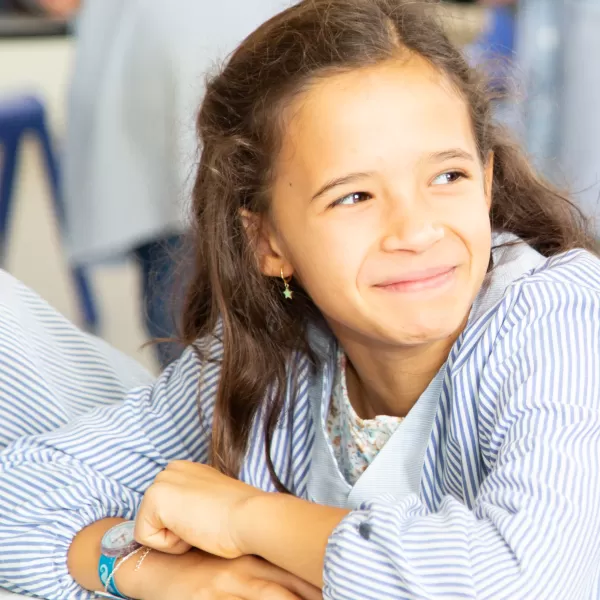
THE STUDENT AT THE CORE
We support them to achieve knowledge in an integrated manner, to learn to think and learn to learn. We support them to achieve social and emotional competence, catering for diversity. We learn to be and act increasingly autonomously, to communicate and express what we feel, to learn and live critically, to open up to the world, to discover and take initiative.
Image
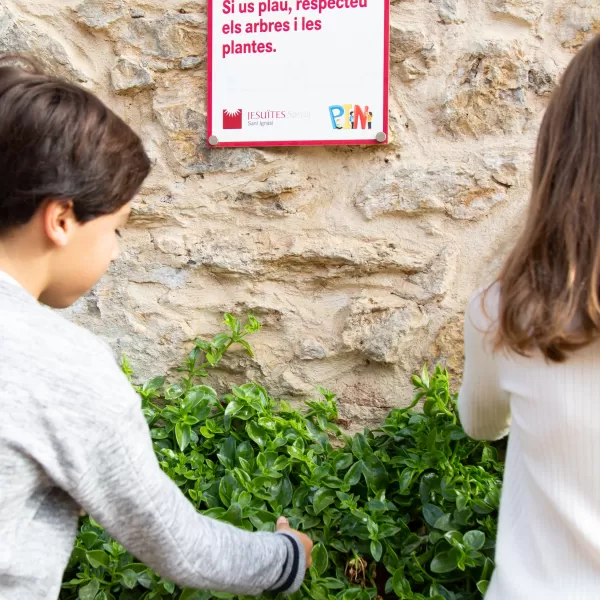
ENVIRONMENT: awareness, co-responsibility and commitment
We learn to get to know ourselves by discovering our emotions and those of others, to cooperate and live together based on mutual respect. We promote the active collaboration of the family. We integrate interactions with our immediate environment, we begin to understand what is going on in the world and cultivate a critical eye.
Image
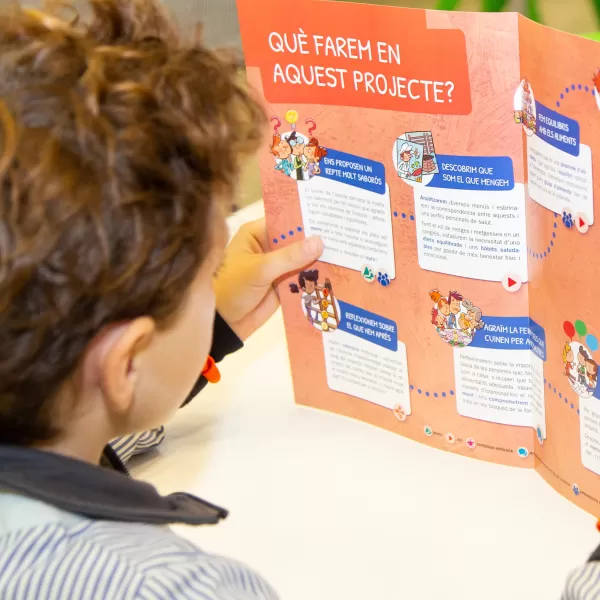
CONTENTS: significant and proximal from Year 1 to 4, and connected and open in the wider world in Years 5 and 6
We integrate learning into resolving relevant, complex and diverse situations.
We foster the acquisition and use of knowledge, skills and values. We build upon our learning and relate it to any situation.
We respond to real challenges from different fields of knowledge.
Image
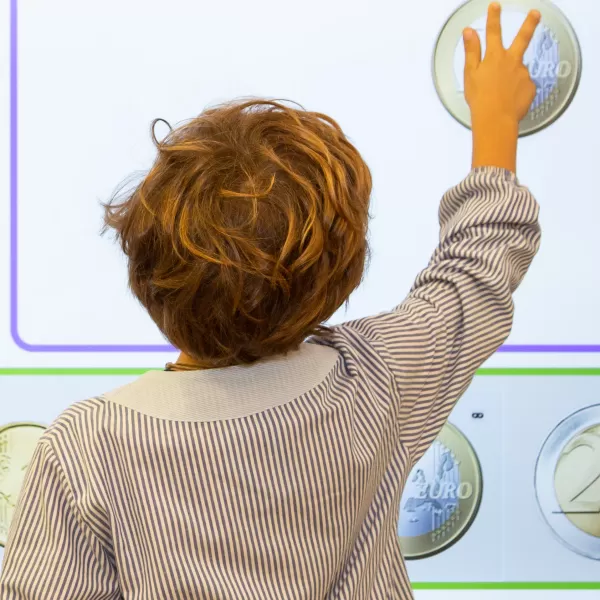
METHODOLOGIES: mobilising and cooperative, active and diverse
We learn to solve the challenges we set ourselves. We customise the various interests and paces of learning. We encourage students’ creativity through learning by discovery, and we promote motivation and individual and team work in research processes. We strengthen links with the global and local environment, participation, co-responsibility and autonomy.
Image
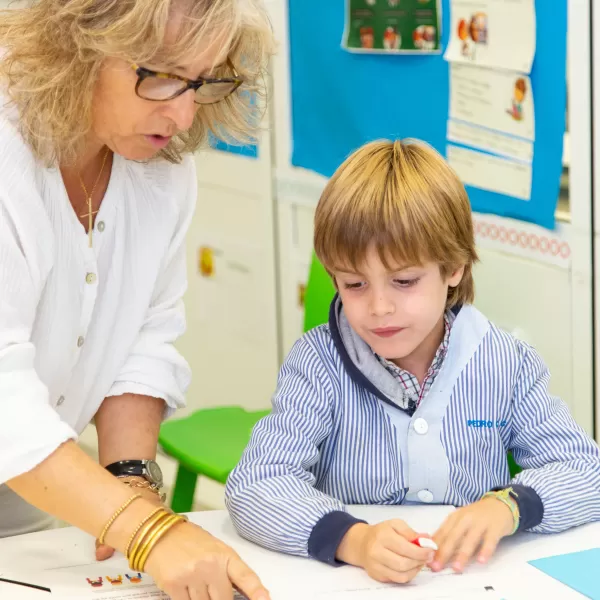
ASSESSMENT: ongoing and learner-centred from Year 1 to 4, competency-based, training and formative in Years 5 and 6
We work towards co-responsibility in the learning process and offer strategies for reflection with classmates, families and educators. We help with the acquisition of strategies to enhance competences, skills and attitudes, fostering a positive sense of self-esteem. We guide decision-making to improve results.
Image
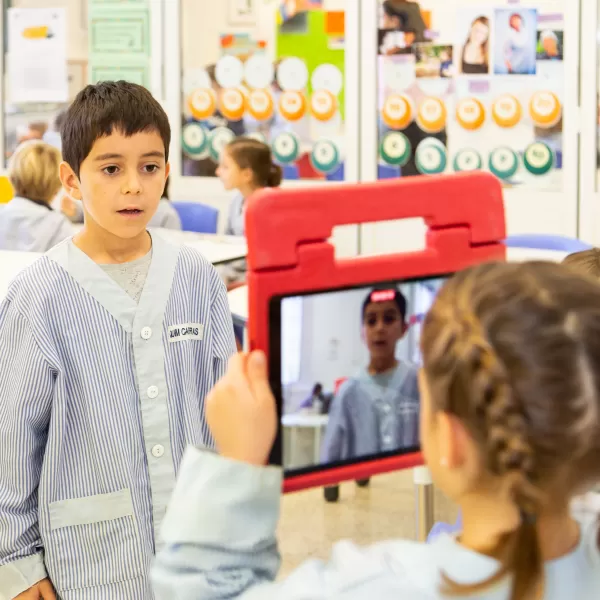
ORGANIZATION: inclusive and participatory
We accommodate different learning paces and interests through various educational scenarios and proposals. We foster healthy relationships, quality relationships and democratic participation of our students. We offer spaces for well-being by meeting our pupils’ socio-emotional needs. We incorporate the family as an active member of the educational community.
Our programmes and projects
Global scope
We access knowledge in a multilingual, multicultural and globalised environment.
We influence learning by incorporating English in different areas of knowledge and context close to the students. From Year 5 onwards, we encourage virtual exchanges and stays abroad and the introduction of foreign languages such as French and German.
Reading project and enjoyment of reading
From Years 1 to 4, we lay the foundations of reading and writing and awaken the children's love of reading. Together we build tools and strategies to discover and understand the world around us. We read while playing: we encourage participation, peer work and self-regulation in reading. From Year 5 onwards, we work on developing and expressing our own opinion about the readings, as well as the autonomy and internalisation of the reading process. We enhance oral expression and comprehension as well as communicative and linguistic skills.
Learning environments
In Primary Years 1 and 2 we offer spaces, with a wide variety of proposals and materials, designed so that children can construct their own learning through play, exploration, experimentation, interpretation, cooperative work and interest- and pleasure-based learning. On the basis of these proposals, children investigate, doubts arise, they make hypotheses, look for different solutions and reach conclusions.
Robotics Project
From Year 1 to 4 we learn to programme, build and solve the problems that arise, autonomously and creatively. We work in cooperative groups and overcome the challenges proposed by assigning roles.
Nature Classroom
We help them to gain a deeper knowledge of the environment that surrounds them. We learn to respect nature and conservation. Through learning by doing, children make direct observations and tend to the garden.
Swimming
On the school premises and during school hours, for all pupils from P3 to Primary Year 6. As an after-school activity for students from P5 to Upper Secondary Year 2.
Crea Project
From Year 5 to Lower Secondary Year 2 we foster creativity, enabling pupils to suggest and choose a project according to their interests and aptitudes.
We develop an entrepreneurial attitude and encourage a collective creation in which everyone contributes the best of themselves and puts it at the service of others.
We show our work to families.
The Manresa space, Take your time and volunteer work
We encourage dialogue between students and educators and inner reflection.
We discover the world from a different perspective and develop techniques that help to regulate and manage coexistence inside and outside the classroom. We also propose volunteering activities within the school, accompanying the youngest children and fostering charity and awareness-raising campaigns.
English in Primary
“…users and learners are capable of communicating and learning in a multilingual environment”.
We base our learning on various pedagogical streams: the multiple intelligence theory (songs, dialogues, activities, performances, quizzes); emotional intelligence (motivation, empathy, interpersonal skills); the generative voice theory (pupils learn a foreign language in the same way as they acquire their mother tongue).
We foster knowledge and respect for the culture of English-speaking countries.